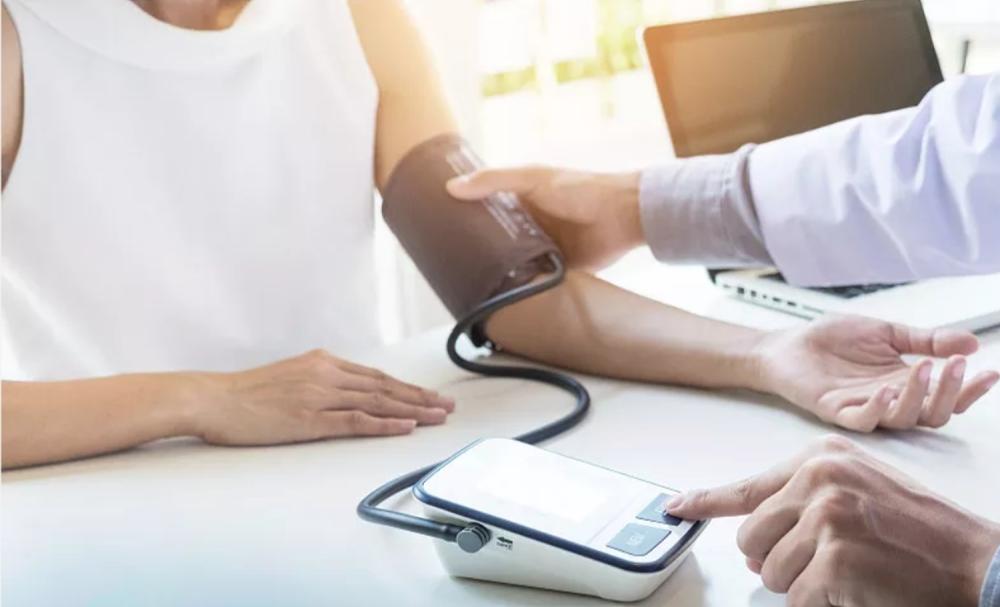Text/Yangcheng Evening News all-media reporter Chen Hui
Correspondent Liu Qingjun
Photo/Visual China
Blood pressure was measured for several days at around 138/85mmHg, which is higher than the 120/80mmHg of normal blood pressure, but lower than the diagnostic standard of 140/90mmHg for hypertension. So, is this blood pressure level normal or abnormal? Xie Huiwen, deputy chief physician of the Department of Medical Technology of the First Affiliated Hospital of Guangzhou University of Chinese Medicine, answered that this belongs to the "pre-hypertension", which is only one step away from hypertension, and timely lifestyle intervention can reduce the risk of developing into hypertension.

1 in 3 adults is in a prehypertensive state
Xie Huiwen introduced that pre-hypertension (normal high value) refers to those with high pressure of 120 to 139mmHg, or low pressure of 80 to 89mmHg. it is a transitional area between normal blood pressure and hypertension that needs to be treated with antihypertensive drugs.
Statistics show that about 30% of adults are in a pre-hypertensive state, among which most of them are young and middle-aged, and young and middle-aged people take poor medication compliance, less physical activity, unreasonable diet structure, life pressure and other factors.
Studies have shown that prehypertension is a prelude to hypertension and is associated with a variety of cardiovascular disease risk factors. There may be no symptoms in the prehypertensive period, but with increased blood pressure, nonspecific symptoms such as headache, visual changes, fatigue, and dizziness, as well as vascular endothelial dysfunction, aortic elasticity impairment, atherosclerosis, changes in the structure and function of the heart, renal arteriosclerosis, and blood uric acid and microproteinuria may occur.
What are the symptoms of prehypertension?
Some people say that pre-hypertension often does not appear like the symptoms of obvious cardiovascular and cerebrovascular damage caused by hypertension, how do I know that I am prehypertensive? In fact, it is very simple, if you can observe it carefully every day, once the following symptoms appear, you must be careful!
(1) Thinking is more exciting: it is difficult to fall asleep at night, it takes a long time to fall asleep calmly, if the situation continues to occur, you must pay attention.
(2) Irritable temperament: the mood is inexplicably irritable, the mood fluctuations are larger, and it is easy to interrupt others when talking to people.
(3) Headache: Inexplicable headache, especially in the case of poor sleep at night. If you are a friend who smokes, smoking will cause headaches to worsen.
(4) Inattention and memory loss: it is not obvious in the early stage, but it gradually worsens with the development of the disease. It is manifested by easy distraction, loss of recent memory, and difficulty remembering recent events, but remembering things that have been done for a long time.
(5) Limb numbness: common numbness in fingers and toes, skin such as mosquito travel or neck back muscle tension, soreness. Some patients often feel stiff and inflexible fingers.
(6) Dizziness: Dizziness is the most common symptom of hypertension in the early stages. Some dizziness is transient, often appearing during sudden squatting or erection, and some are persistent, often accompanied by blurred vision and even hazy haze.
If the above situation occurs, you should seek medical attention in time and go to the hospital for corresponding examinations: such as a 24-hour ambulatory blood pressure check in order to understand your own condition. Early findings, often measured blood pressure will appear at the critical point of 140/90mmHg, doctors generally according to the specific situation of the patient, try not to prescribe drugs, recommend patients self-observation for three months, require patients only need to carry out relevant interventions in lifestyle.
Do I need to take medicine in the pre-hypertension period?
The vast majority of patients with prehypertension generally do not need to take antihypertensive drugs, unless the patient's basal blood pressure is low, the recent increase in blood pressure is more than 20% higher than the previous basal blood pressure, even if the blood pressure value does not exceed 140/90mmHg, it is also necessary to use certain antihypertensive drugs to help reduce blood pressure.
What should I do with prehypertension?
Xie Huiwen suggested that people with pre-hypertension pay close attention to and monitor their blood pressure on a daily basis, but also pay attention to improving their lifestyle. Including reducing sodium salt intake, reasonable diet, weight control, quitting smoking and limiting alcohol, increasing moderate-intensity exercise, reducing mental stress, maintaining psychological balance, etc., can significantly reduce the risk of developing high blood pressure. (For more news, please pay attention to Yangcheng Pie pai.ycwb.com)
Source | Yangcheng Evening News Yangcheng Pie
Editor-in-charge | Xue Renzheng